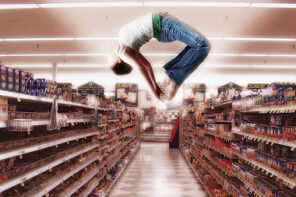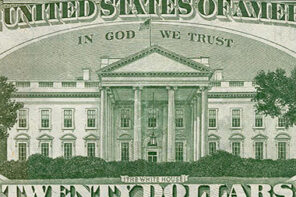Yes, friends: an American culture that says it really, really cares about its children needs to pay close attention now. We already overcategorize these same children; we overstimulate them and then we overmedicate them in so many disturbing ways.
But now we are about to cross a whole new boundary, because researchers have learned that tiny tots are actually able to make “consumer choices” much earlier than was ever before thought possible: they are neurologically ready to shop ’til they drop even at the tender age of three.
According to the new study, jointly conducted by researchers at the University of Michigan and the University of Wisconsin, “children use brand cues to determine what food products will be exciting or which toys will be the most enjoyable, and values associated with items (like food choices) are formed as young as three years old.” As well: “The most commonly recognized brand was McDonald’s, followed closely by other brands of fast food, soda, and toys.”
The press release from the University of Michigan’s School of Kinesiology touted the contribution to the research of one Dr. Bettina Cornwell, identified as Professor of Sport Marketing at the school. Efforts to speak to Dr. Cornwell were unavailing. Her publicist told me that she had been “swamped” with interview requests and was about to embark on travel.
We should also note that the Professor of Sport Marketing did not actually say to ravenous marketers, “Folks, we just struck some serious gold here! Y’all come and get it!!” But I do think it is fair to conclude that her message is, shall we say, a mixed one.
I mean, how do you really improve on this statement for sending a mixed signal (and this is Dr. Cornwell speaking in the press release): “I think the outcomes of our study help paint the picture that young children really do understand the power of branding and advertising and highlights (sic) the need for lawmakers to continue to monitor and regulate advertising to children.”
Does Prof. Cornwell seriously think—or do we—that advertisers who come upon her research will say to themselves, “Interesting—but it would be so wrong to pitch to those little ones”? Or that government will ever catch up with the marketers, once they’ve tapped into the neuronal passageways of the preschool set?
Children as Economic Droids or Children as Light Bearers: Could We Please Decide?
I didn’t hesitate when the editors asked me what I saw as the religious angle in this story. “Wordsworth!” I fairly shouted back.
Here is William Wordsworth in his justly celebrated “Intimations of Immortality” ode (and readers who, like me, once memorized these lines should feel free to recite them aloud):
Our birth is but a sleep and a forgetting:
The Soul that rises with us, our life’s Star,
Hath had elsewhere its setting,
And cometh from afar:
Not in entire forgetfulness,
And not in utter nakedness,
But trailing clouds of glory do we come
From God, who is our home:
Heaven lies about us in our infancy!
Shades of the prison-house begin to close
Upon the growing Boy,
But He beholds the light, and whence it flows,
He sees it in his joy;
The Youth, who daily farther from the east
Must travel, still is Nature’s Priest,
And by the vision splendid
Is on his way attended;
At length the Man perceives it die away,
And fade into the light of common day.
Wordsworth has much more to say about those clouds of glory we are born with in his psychologically astute Prelude. But here in “Intimations” we are given the essence in a perfect verse stanza: as infants we bring into this life some major bits of heaven; in our very young childhood the we still behold celestial light, even though the prison house is starting to close in; even in our adolescence we still remain Nature’s “priest”; it is only in our adulthood that the beatific vision of what life really is gets swept away by the cares and trivialities of our so-called maturity.
In another poem, Wordsworth elaborates on our loss of the God-given powers we once possessed:
The world is too much with us; late and soon,
Getting and spending, we lay waste our powers:
Little we see in Nature that is ours;
We have given our hearts away, a sordid boon!
I have always thought of Wordsworth, along with his slightly older contemporary, William Blake, as an essential truthteller in respect to what Blake calls innocence and experience. Both defended old folkways and ancient wisdom. Both rebelled against the malign effects of brutal industrialization and its concomitant regimentation. One imagines that neither would approve of testing very young children’s receptivity to national brands of fast food or soda.
And neither would Jesus of Nazareth, who apparently adored and revered young children—and who reserved some rather choice words for those who would seek to exploit them:
If any of you put a stumbling block before one of these little ones who believe in me, it would be better for you if a great millstone were fastened around your neck and you were drowned in the depth of the sea.
(Matthew 18.6; cf. Luke 17:2, Mark 9:42)
Cement socks for the child exploiters, says Jesus.
McDonald’s (and the rest of us): Listen up!



